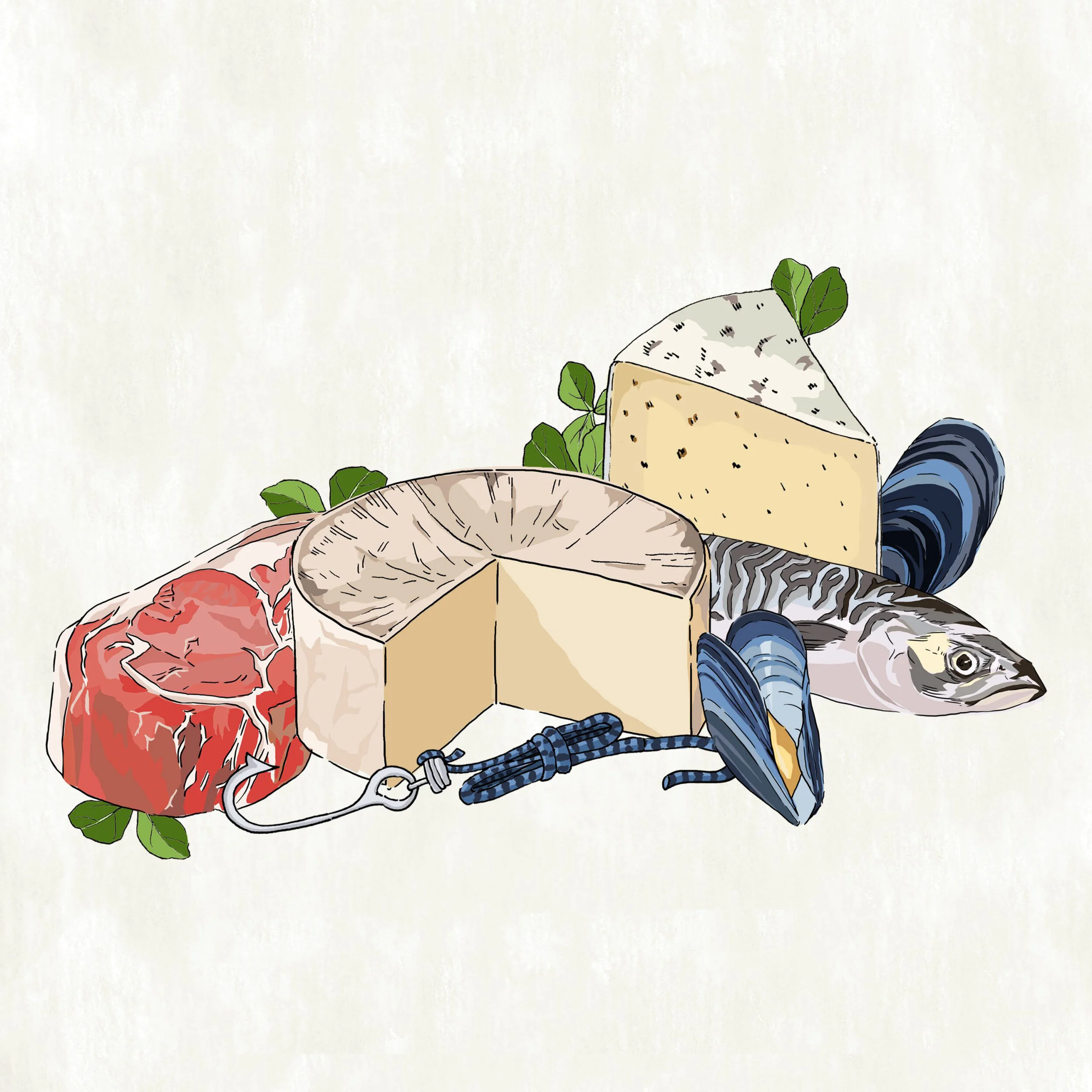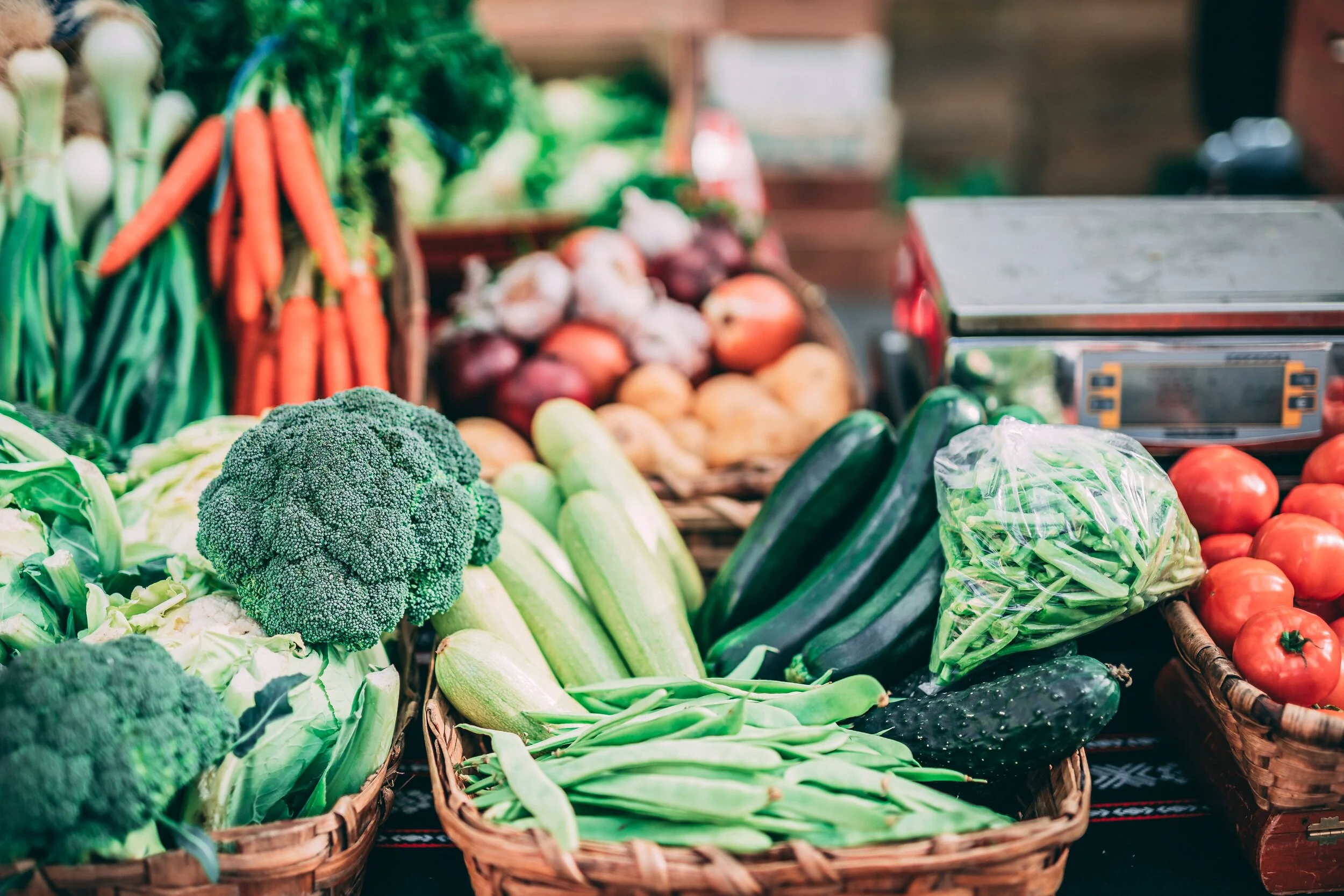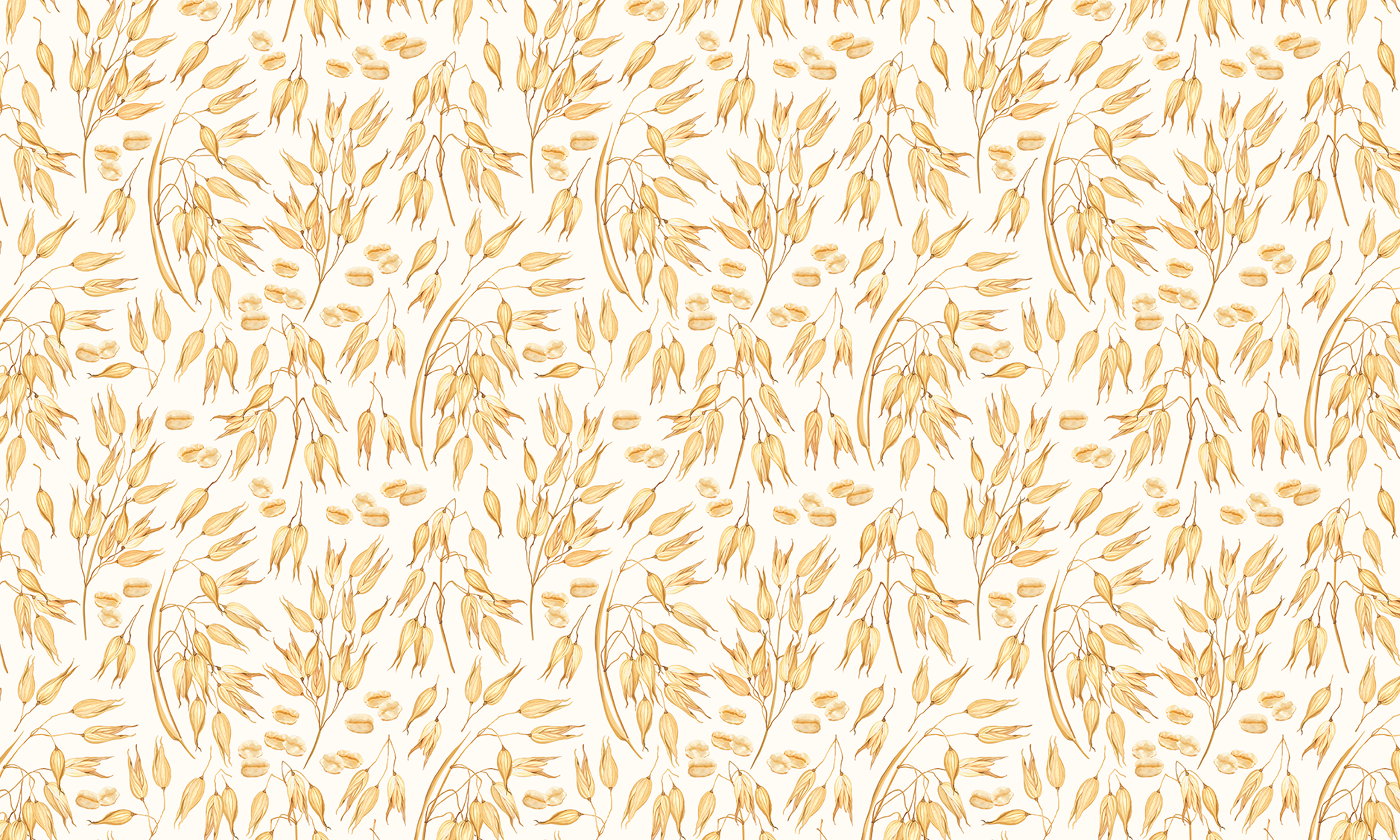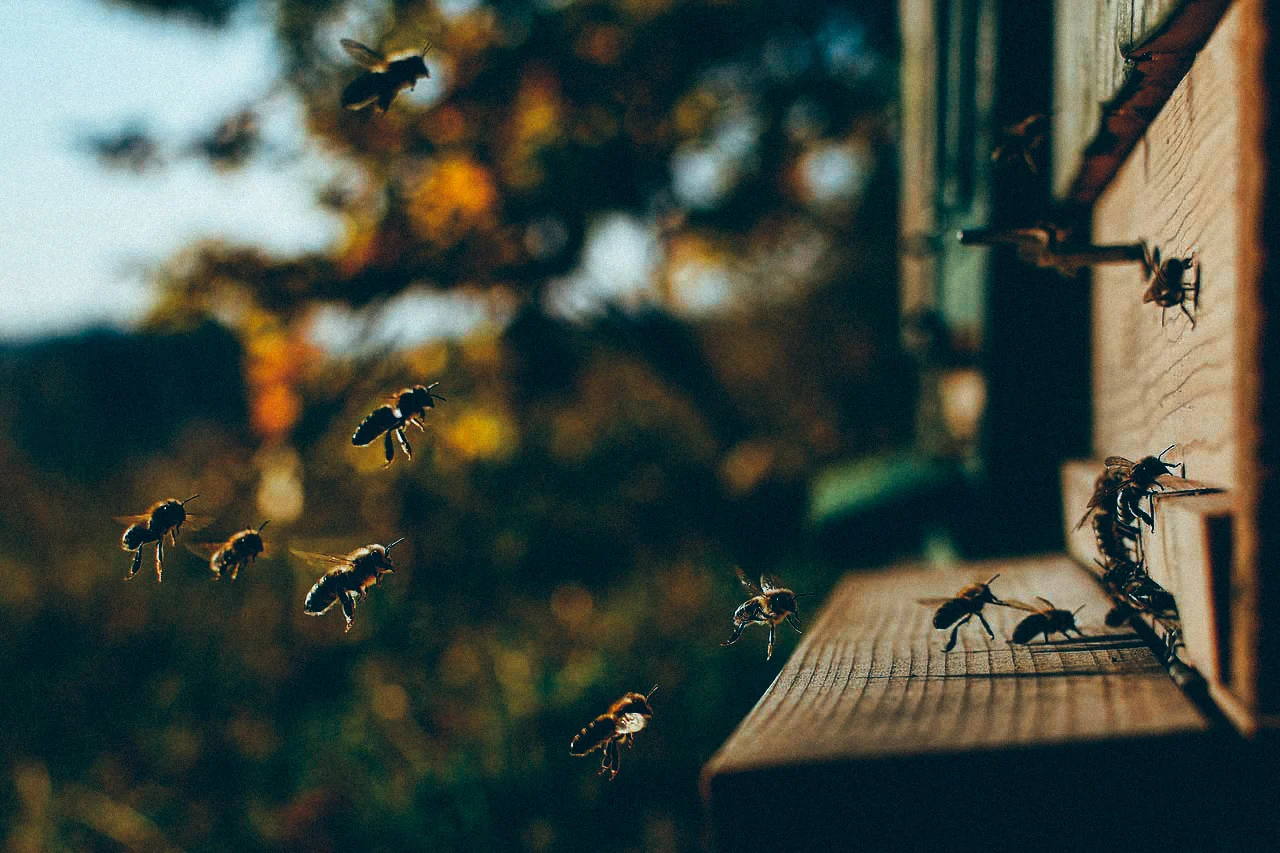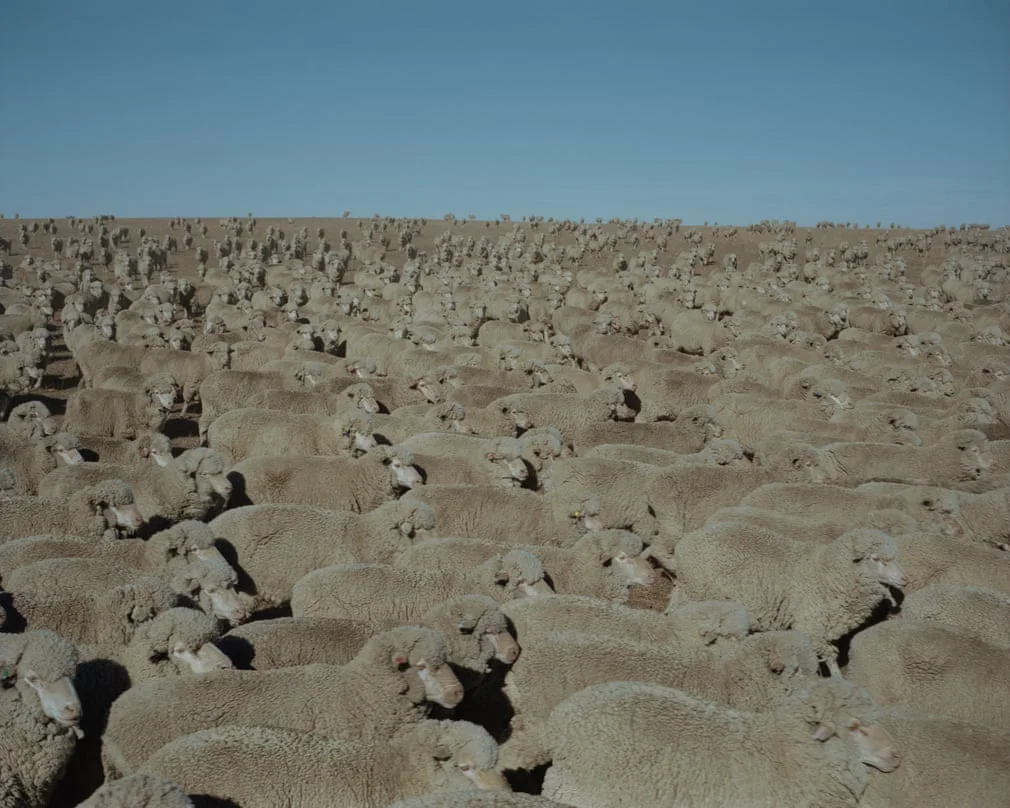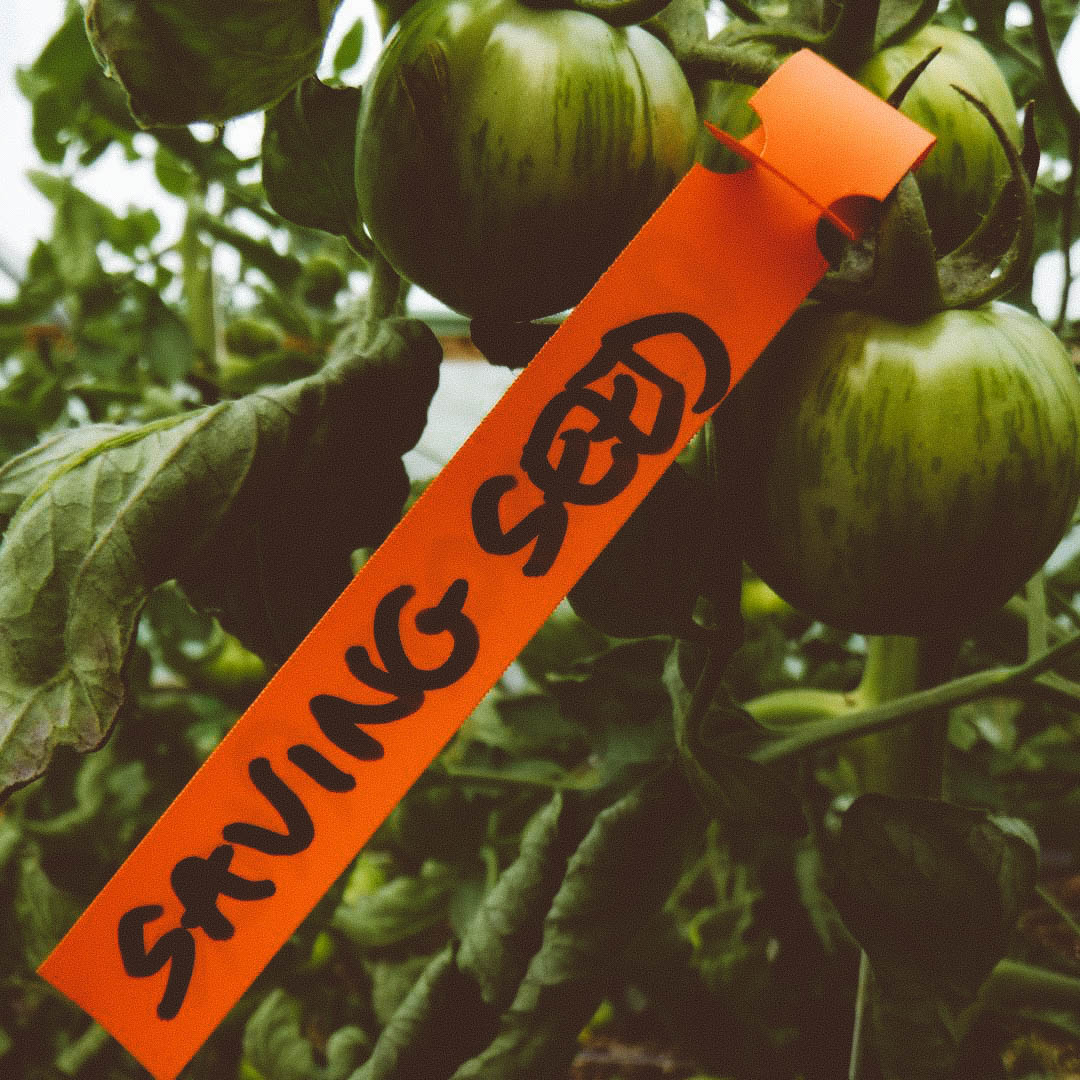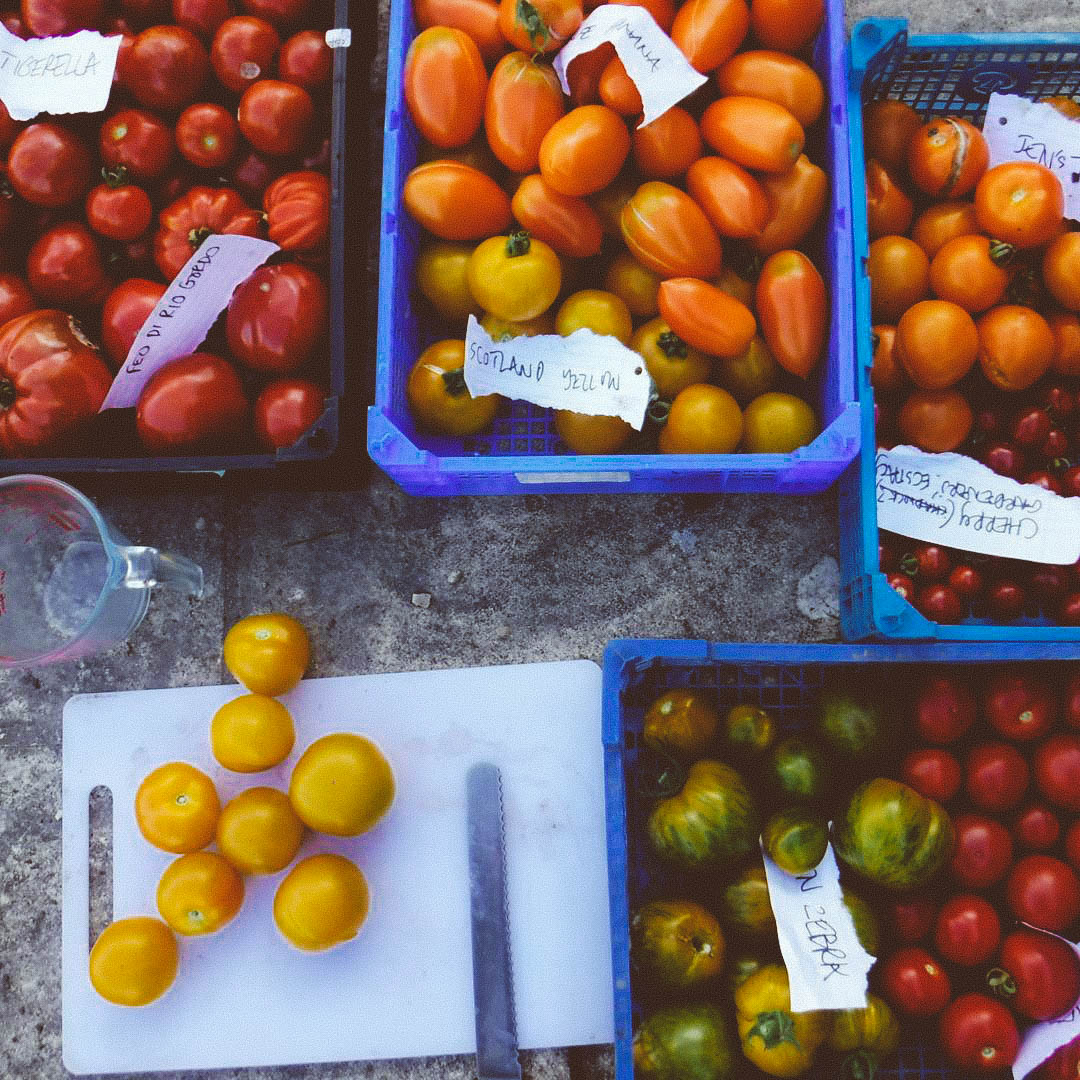2019 has proven to be the year where a burgeoning groundswell of interest in food and farming is converting to real tangible change.
In the world of policy, terms like ‘agroecology’, ‘regenerative farming’, ‘soil health’, and ‘local food’ are being heard through the halls of Government. Through journalism and social media, a polarised debate around meat ensues along with alarming news on climate change. Groups of farmers up and down the country convene to answer the challenge of how to produce healthy food in line with the environment and with the current economic system. All of this energy is fuelling a buzz, a new zeitgeist.
The A Team Foundation has worked in the area of food and farming for the past ten years. Naturally, we are excited to see the movement blossom. Making full use of this momentum, along with our friends The Roddick Foundation, we launched Farming the Future.
Farming the Future is a project that supports the transition to a regenerative food system through collaborative philanthropy and redirecting institutional agricultural finance.
A workshop was arranged in the spring of 2019, participants from the regenerative food and farming sector could meet and share each other’s work. The outcome of this day was for us to receive collaborative grant proposals, where there were partnerships of three or more organisations.
In October, successful applicants were selected and given the grants. Here, we are able to share with you the ten projects that we are proudly working with.
If you would like to know more about the work, please feel free to email Robert@ateamfoundation.org
AGROECOLOGICAL MENTORING NETWORK - SUPPORTING THE NEXT GENERATION OF FARMERS
PROJECT LEADER: THE LANDWORKERS’ ALLIANCE
Partners: COMMUNITY SUPPORTED AGRICULTURE NETWORK UK & ECOLOGICAL LAND COOPERATIVE
The Landworkers’ Alliance (LWA) is a union of farmers, growers, foresters and land-based workers. Their mission is to improve the livelihoods of their members and create a better food and land-use system for everyone. Their vision of the future is one where people can work with dignity to earn a decent living and everyone can access local, healthy and affordable food, fuel and fibre. This is achieved through a food and land-use system based on agroecology, food sovereignty and sustainable forestry that furthers social and environmental justice.
The LWA are collaborating with the Community Supported Agriculture Network UK (who addresses increasing concerns about the lack of transparency, sustainability and resilience of our food system through reconnecting the community to food production) and the Ecological Land Cooperative (who provide affordable opportunities for ecological land-based businesses in England and Wales) to establish a formal mentoring network.
It is stated that we are on the edge of a very serious crisis in farming with regards to succession, and how the next generation of farmers can get into the field. Farming is tough, and new entrant farmers face multiple challenges including, but not limited to, access to land, access to capital, access to resources, access to markets and access to training, mentoring and support. Organisations are working hard on multiple fronts to support the next generation of farmers and the Land Workers Alliance believe it is essential that one way we do this is by creating a community and a movement of well-connected farmers and land-based workers across the UK through developing training, exchange and mentoring programs.
The grant is to create an Agroecological Mentoring Network for new entrant farmers and farmers who have been operating for less than 5 years. Currently in the UK there are hardly any programmes to support and train new entrant and starter farmers to get into the field of small-scale farming and land-based work, and of the handful that exist none focus on agroecological farming practices. Across the UK, the average age of a farmer is now over 60 and less than 5% of the farming labour force is under 35 years old, so it is urgent we support more people to get into regenerative, agroecological farming as part of building the food and farming systems’ resilience in the face of climate chaos.
AN EVALUATION OF THE VALUE CREATED BY GROWING COMMUNITIES ACROSS THE TRIPLE BOTTOM LINE
PROJECT LEADER: GROWING COMMUNITIES
Partners: SOIL ASSOCIATION & NEW ECONOMICS FOUNDATION
GC is a community-led organisation that has operated in Hackney, North London, for the last 20 years, providing an alternative to the current damaging food system. They harness the collective buying power of their local community and direct it towards those farmers who are producing food in a sustainable way. This allows small-scale farmers and producers, whom they believe are the basis of a sustainable agriculture system, to thrive. GC champion ecological locally based farmers, whose food they bring to consumers through a veg box scheme and a weekly farmers’ market. They have helped to set up 11 other enterprises who operate according to the GC model and principles, who are now collectively known as the Better food Traders.
Using the economic and supply chain expertise of the New Economics Foundation and the Soil Association, the collaboration will monetise the economic, environmental and social value of GC’s work so that they and the wider movement are better able to articulate to consumers and policymakers the worth of locally produced food sold in local supply chains. In addition, by creating a valuation toolkit that GC will roll out to their Better Food Traders network they will enable distributors operating along similar lines to GC to do the same. The output of the collective efforts will be a report that analyses the findings of the research, and a valuation toolkit to help similar organisations to monetise their impact.
GC anticipate that they will be able to use the research to drive up consumer demand for local food, both from individuals and government. Additionally, the report will provide great impetus for those replicating GC’s model other cities across the UK. It will also enable them to better engage with local and national authorities and provide convincing real-life evidence of the benefits to public life of organic local supply chains, which may ultimately culminate in policy change.
ENGLAND’S FIELDS (FARMING & INTEGRATED ENVIRONMENTAL LOCAL DELIVERY SUPPORT)
PROJECT LEADER: FARMLAND WILDLIFE ADVISORY GROUP SOUTH WEST
Partners: PASTURE FOR LIFE, SUSTAIN & REAL FARMING TRUST
Farmland Wildlife Advisory Group (FWAG) was first established as a charity in the 1960s by a group of forward-thinking farmers who saw that that the environment was an important part of a successful farming business. FWAG provides trusted, independent environmental advice to the farming community, building a reputation for its ethical ethos and high standards of service. The organisation helps farmers understand the environmental value of their land and make the most of the agri-environment options available.
Their partners are Pasture for Life (who successfully champion the virtues of grass-based farming and meat production), Sustain (advocates for food and agriculture policies and practices that enhance the health and welfare of people and animals) and the Real Farming Trust (a charity concerned with food sovereignty and sustainable farming (in particular, the practice of agroecology).
The aim of the project is to roll out their integrated local delivery framework. The process creates the opportunity for all communities (with support from an environmental adviser) to take local action for climate change by being inspired to reconnect to agroecological farming and enabling the benefits of re- localisation. To do this, specially trained advisers will enable communities to understand how to unpick the complexity of governance of their local area and apply it at human scale.
The objective is to provide an analysis that demonstrates to Treasury and all Government departments the cost benefits of integrating a localised framework and regenerative agriculture. The aim is for Government to finally see the benefit of reducing the number of public bodies funded to deliver multiple single issues objectives (which create added complexity and confusion to farmers and communities). Instead it will promote the cost benefit for the Government to invest in training and accrediting advisers that are available to every farmer and community to take local action. In turn, enabling co-delivery, release social capital, improve the environment and with additional socio-economic benefits.
HARMONISED FRAMEWORK FOR MEASURING AND VALUING ON-FARM SUSTAINABILITY
PROJECT LEADER: SUSTAINABLE FOOD TRUST & THEIR Wide NETWORK OF COLLABORATORS
The Sustainable Food Trust is a registered charity that was founded by Patrick Holden in response to the worsening human and environmental crises that are associated with the vast majority of today’s food and farming systems. Their mission is to accelerate the transition to food and farming systems which nourish the health of the planet and its people.
There is growing evidence that the agriculture and food industry is one of the most significant contributors to the transgression of ‘planetary boundaries’, especially in the areas of greenhouse gas emissions, resources use, biodiversity loss, soil degradation and water pollution. To avoid irreversible climate change and continued natural capital degradation, we are now at a point where a global transition to more sustainable production systems is urgently needed. However, this transition is being preventing by a number of barriers to change, two of the most significant being: the failure to account for the hidden costs of food production systems and the lack of a unified means way of measuring food system sustainability.
As a direct consequence of these barriers, producers are locked into a cycle of dependency on growing commodity crops/products which have a negative impact on the environment and public health, and consumers have no real way of making more informed buying choices.
Such a framework as this, analogous to the existence of the international profit and loss accounting standards, has the potential to provide a common communication platform for every food producer in the world, as well as informing governments about the impact of their farming policies and providing consumers with accurate information about the relative sustainability of the products they buy.
MAKING VOICES HEARD: ENSURING THAT ‘FARMING THE FUTURE’ CONCERNS ARE EMBEDDED IN IMMINENT POLICY, LEGISLATION AND FUTURE FARM FUNDING
PROJECT LEADER: SUSTAIN
PARTNERS: LWA, PANUK, SUSTAINABLE SOILS ALLIANCE & FARMING WORKING PARTY OF THE SUSTAIN ALLIANCE
Sustain - The alliance for better food and farming - advocates food and agriculture policies and practices that enhance the health and welfare of people and animals, improve the working and living environment, enrich society and culture, and promote equity. They represent around 100 national public interest organisations working at international, national, regional and local level.
The grant ensures that the voices and expertise of agroecological farming and sustainable land use are brought to the fore at key moments to be properly reflected in public policy and legislation. As well as ensuring that the voices of the wider movement gain opportunities to shape the funding systems, policy and governance structures.
The Sustain alliance has already consulted and lobbied widely on key priorities for sustainable food and farming policy in relation to the Agriculture Bill, ELMS and the National Food Strategy, and are collecting evidence on the UK Shared Prosperity Fund (not yet established).
Sustain’s collaboration will continue to be vocal about priorities for high environmental, farming, animal welfare and food standards, and expose the threats from low standards facilitated by ill-considered trade deals. Climate emergency and nature restoration, agroecology, animal welfare, and fair terms of trade for farmers and workers, are specifically are to be properly reflected in each of the key pieces of legislation, policies, government funding and processes, reflecting the priorities championed by our movement.
PESTICIDES: CATALYSING CIVIL SOCIETY TO REDUCE FARMING CHEMICALS
PROJECT LEADER: RSPB
PARTNERS: PESTICIDE ACTION NETWORK UK, SOIL ASSOCIATION & FRIENDS OF THE EARTH
The RSPB’s mission statement is ‘Passionate about nature, dedicated to saving it’. They’re now the largest nature conservation charity in the country, consistently delivering successful conservation, forging powerful new partnerships with other organisations, and inspiring others to stand up and give nature the home it deserves.
The project is a feasibility scheme run in collaboration with PAN UK, Soil Association, and Friends of the Earth, which sets out to learn how a new programme of work could unite a civil society movement around chemicals. An essential phase of work that has the potential to kickstart a wide variety of civil society actors to target a national reduction in pesticide use and related harms in the UK.
Pesticides play a huge role in today’s farming but have significant negative impact through their direct (and indirect) effects on nature and people, and as a symbol of highly intensive agriculture which is fundamentally unsustainable. Cutting the use of chemical inputs requires a significant change in mind-set to find ways to farm with nature instead of against it. Farming with fewer chemicals leads to a more resilient form of food production that maintains essential ecosystem services.
The RSPB notes that there is a need to set a genuine strategic process which asks what civil society can do to change the UK’s approach to pesticides and, in tandem, push for a major reduction in pesticide use. This collaboration will also identify who would be best placed to tackle this action through the development of a shared ‘Theory of Change’.
PROTECTING UK PESTICIDE STANDARDS FROM POST-BREXIT TRADE DEALS
PROJECT LEADER: PESTICIDE ACTION NETWORK UK
PARTNERS: SUSTAIN & SUSSEX UNIVERSITY
Pesticide Action Network UK (PAN UK) are the only UK charity focused solely on tackling the problems caused by pesticides and promoting safe and sustainable alternatives in agriculture, urban areas, homes and gardens. They work tirelessly to apply pressure to governments, regulators, policy makers, industry and retailers to reduce the impacts of harmful pesticides to both human health and the environment.
PAN UK are partnering with the lobbying ability of Sustain and the academic expertise of Sussex University to protect UK pesticide standards post-Brexit. The UK government is touting trade deals with countries outside of the EU as a key opportunity arising from Brexit. The EU has by far the strongest pesticide regime in the world in terms of protecting human health and the environment. This restricts not only the range of pesticides permitted to be used in UK agriculture, but also the residues that are permissible on food imports. Therefore, trade deals with non-European countries come with huge potential for undermining UK food quality and pesticide standards. As well as this being a major problem for public health, it also risks driving a ‘race to the bottom’ as UK farmers are forced to increase their pesticide use in order to compete with the influx of cheap chemical-laden food from non-EU countries.
The overall purpose of this project is to expose the dangers posed by post-Brexit trade deals to UK pesticide standards. This is achieved through the use of media stories and persuading and scrutinising Government. In addition, this project will generate proposed language for future UK trade agreements which, if adopted, would uphold existing UK pesticide standards.
SAVING COUNTY FARMS
PROJECT LEADER: CAMPAIGN FOR THE PROTECTION OF RURAL ENGLAND
PARTNERS: NEW ECONOMICS Foundation & SHARED ASSETS
For over 90 years, Campaign for the Protection of Rural England (CPRE) work locally and nationally to stand up for the countryside: to protect it from the threats it faces, and to shape its future for the better. In that time, they’ve helped win protection as National Parks for some of our most remarkable landscapes, from the Lake District to the South Downs. They’ve helped to influence and apply planning laws that have, against the odds, preserved the special beauty and character of the English countryside. Their vision is of the future is a beautiful and thriving countryside that’s valued and enjoyed by everyone.
Currently, a significant area of farmland - around 90,000 hectares of land in England – remains in public ownership as County Farm estates, but the role and opportunity they offer have been largely overlooked. County Farms are a valuable public asset owned by local authorities, enabling entry into the farming industry to young or first-time farmers through affordable, below-market rates.
However, they are a public asset under threat. Austerity has put immense pressure on local authorities, leading to a rapid sell-off of public land, as part of local authorities’ asset portfolios to fill budgetary gaps. The extent of County Farms has halved in 40 years. If they remain undervalued and poorly understood by politicians, officials, as well as the general public, their sell-off is likely to continue.
The project explores new models and approaches to how publicly owned farmland (County Farms) can be managed under public ownership, to set out their potential to deliver a range of public benefits and to develop a new vision for them. Using the economic analysis by the New Economics Foundation and sector knowledge of Shared Assets, CPRE will advocate this vision with key decision makers and the wider sector to build consensus and commitment to secure the future of County Farms for the common good.
The coming years will see significant changes to the way we farm, and the way we manage land more generally. County Farms have real potential to pioneer new forms of farming and land management that can help national and local government to address the multiple challenges society faces: not least the climate crisis, dietary and mental health and well-being, but also falling biodiversity and the disconnection from nature and food production.
SAVE OUR SEED: CULTIVATING RESILIENCE IN OUR FARMING SYSTEM – EUROPEAN EXCHANGES FOR INSPIRATION, COLLABORATION AND EMERGENCE
PROJECT LEADER: GAIA FOUNDATION
PARTNERS: LANDWORKERS’ ALLIANCE & UKGRAIN LAB
The Gaia Foundation have over 30 years’ experience accompanying partners, communities and movements in Africa, South America, Asia and Europe. Together they work to revive bio-cultural diversity, to regenerate healthy ecosystems and to strengthen community self-governance for climate change resilience. Gaia established the UK and Ireland Seed Sovereignty Network in 2017 to support a biodiverse and ecologically sustainable seed system; “because a food revolution starts with seed”.
This project coordinates a series of European exchanges to support the re-emergence of seed and grain sovereignty in the UK and Ireland. European counterparts have developed inspiring and resilient seed movements, communities of practice, and exchange networks, and Gaia would like the opportunity to exchange and learn from some of the leading examples of food and seed sovereignty in practice.
While the seed sovereignty movement in many parts of Europe is vibrant and thriving, here in the UK and Ireland it was, until recently, all but lost. Since 1900, we have lost 75% of our plant genetic diversity (source: FAO) and in the UK 80% of organic vegetable seed is imported from continental Europe and beyond. It has been the work of the Seed Sovereignty UK & Ireland Programme and its key partners over the past two years, to strengthen the network of seed savers, empower growers to save seed, and train a new generation of local open-pollinated seed producers.
Seed sovereignty and the propagation of open-pollinated, locally sourced seed is vital not only for food diversity and a fair seed system, but also for future food security - as weather conditions become increasingly unpredictable and extreme, the need for genetically rich seed grown, produced and maintained in the UK has never been more important - in diversity lies resilience.
WORKING GROUP ON INTEGRATION OF AGROECOLOGY INTO THE WORK STREAMS OF AGRICULTURE AND LAND-USE PLANNING MINISTRIES IN ENGLAND, WALES AND SCOTLAND
PROJECT LEADER: LANDWORKERS ALLIANCE
PARTNERS: ECOLOGICAL LAND CO-OPERATIVE, COMMUNITY SUPPORTED AGRICULTURE NETWORK, GROWING COMMUNITIES, CAMPAIGN FOR THE PROTECTION OF RURAL ENGLAND, REAL FARMING TRUST & SUSTAIN
The Landworkers’ Alliance (LWA) carries the voices of active land workers forward to advocate for agroecology and local food. Through the collaboration they’ll increase the capacity of engaging with the wider network of public interest groups to research, frame, and deliver, a well-researched collective message to Government.
In regards to working with agricultural ministries, The LWA has a unique position because they are a union of farmers and foresters and are therefore, recognised as stakeholders and statutory consultees. They already work on providing evidence and case studies to increase the uptake of concrete proposals to scale out agroecology and have had measurable success. This project ensures a constant presence and develops a capacity to deep-dive and affect real change. The aim of the project is to provide compelling evidence for agriculture and planning ministries in order to deliver schemes that scale up agroecological farming across the UK.
The LWA notes that potential wins could be a new entrant’s scheme and a small farms productivity scheme. Additional possibilities are a Community Supported Agriculture (CSA) scheme in the future, or one which focuses on integrating communities into farms. It is also reasonable to assist DEFRA to adopt horticulture, green belt and urban agriculture Environmental Land Management Schemes (ELMS) over the next 3 years. With more pressure they should be able to get additional agroecological objectives into the ELMS and, with hope, some social outcomes. Climate objectives are also a political priority , the LWA urges Government to adopt a Climate Action Plan as part of the climate emergency.










